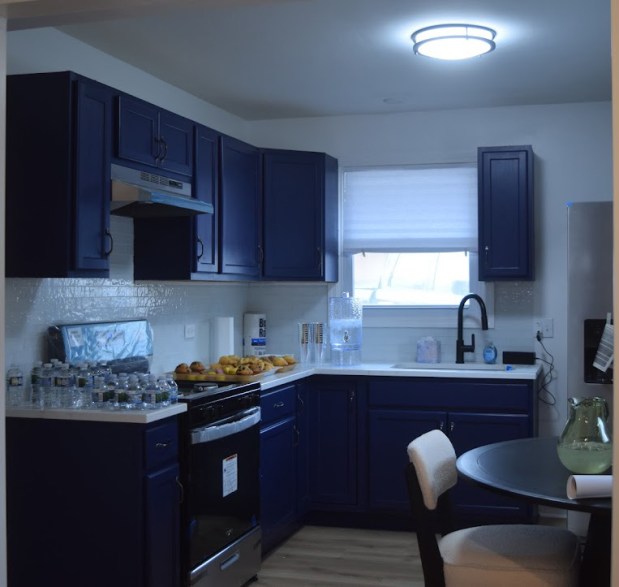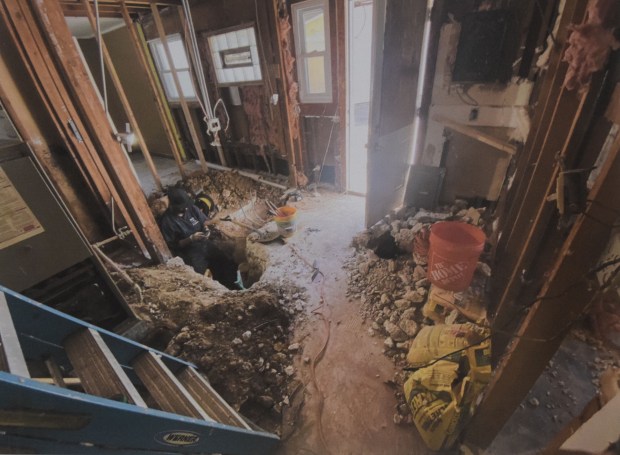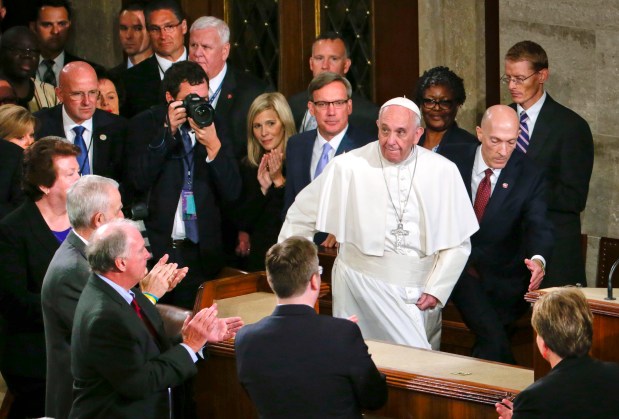No matter the community, there are vacant and neglected homes not fully owned and not legally abandoned. These are the “zombies” of local housing and, like the walking dead of movie fame, these dwellings are to be avoided.
Uncut grass, decrepit gutters, a bad roof and unpaid taxes are the usual logos of decay, often caused by death, debt or disinterest. Be it the vacant house next door, down the street or in the community in which you live, this virus of neglect infects everyone.
Sadly, the hardscrabble south suburbs are often seen as the epicenter of this plague, and that is what the 13-year-old South Suburban Land Bank, comprised of 28 communities, is confronting with injections of time, money and work. The agency has rejuvenated some 200 homes, businesses and vacant lots.
The rehabbing of these decrepit buildings is not something a village wants to be in, says Andrew Brown, Park Forest’s assistant director of economic development
That’s where the land bank steps in, getting title to properties by paying all debts and working to develop, sell or demolish the property, thus eliminating the pungent odor of decay before putting it on the market.
Under the leadership of Joe van Dyk, the executive director of the land bank, it has, for the first time in its existence, bought and then rehabbed an entire house.
This pilot project is a two-story house at 345 Miami in Park Forest, on the market for $179,999 after the land bank spent about $130,000 in a clean-up, fix-up, patch-up effort that turned a community eyesore into a home with up-to-date plumbing, new kitchen fixtures, glistening floors and what was said to be some 50 gallons of paint covering the inside and outside of the house.
It also exudes the heady perfume of a new beginning, “and it is affordable,” said van Dyk. Doing it this way “gives us more control over the outcome,” he said.
Chances are, van Dyk said, “that if you have a vacant or abandoned home some 300 feet from your property your values will go down.” This program is meant to stabilize communities and increase the tax base.
Even zombies can be reborn under this plan.

Last December, in Crain’s Chicago Business, van Dyk wrote that along with a fragile economic base, the area, now challenged by extremely high property taxes, needs new taxpayers by expanding the tax base. He notes under Cook County’s recent increase in 2023, Harvey’s median tax bill increased 82%. In Calumet Park, by 72%. In Phoenix, by 107%.
In just the last two years, van Dyk wrote, the land bank “reactivated 75 properties, generating $930,000 in new tax revenue,” as well as employing local electricians, carpenters, painters and builders.
Kicking the can
Johnnie Thomas, the Rich Township School District 227 superintendent, earns more than $307,000 this year; a salary that will increase to nearly $336,000 by the end of the 2028 school year.
When the rumor spread that Thomas was asking for a year’s extension on his contract, as well as requesting he receive medical benefits for 12 years after his departure, one might think irate district residents facing massive property taxes hikes would storm last Wednesday’s board meeting.
Not quite.
Before the board went into closed session, Richton Park resident Kim Jones was the lone voice heard as she urged the board to vote no on both the proposed increase in salary and perks. Jones estimated the total cost to the district would amount to $1,5 million in salary and benefits, adding her tax bill increased to more than $6,500 and that “our community cannot afford this.”
After more than one hour of discussion the board returned. Board President Andrea Bond combed though some of the issues before quietly announcing the proposal was tabled, proving again that a hot potato always needs an asbestos glove.
Jerry Shnay, at jerryshnay@gmail.com, is a freelance columnist for the Daily Southtown.




